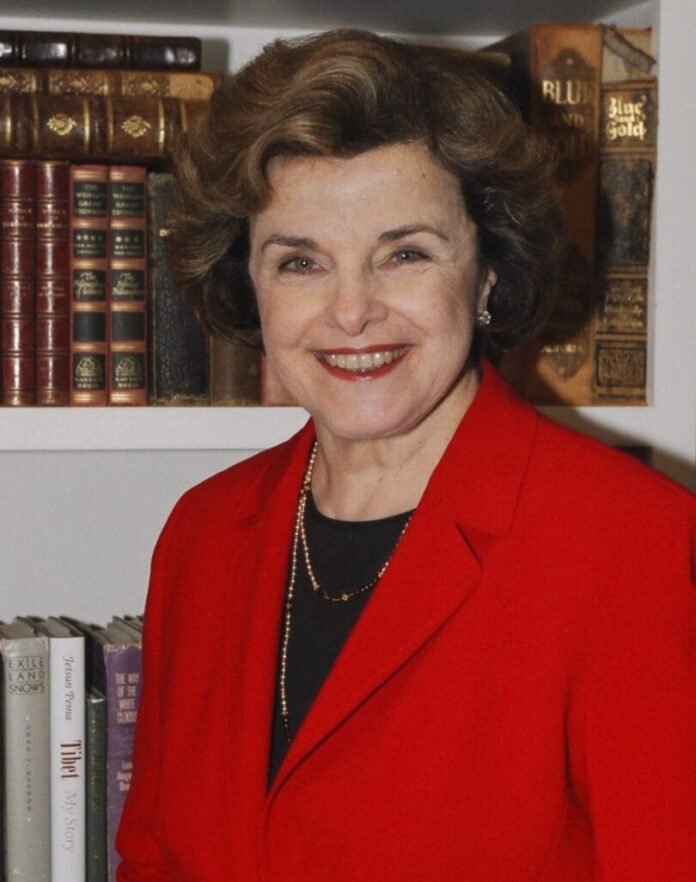
By Stacy M. Brown, NNPA Newswire Senior National Correspondent
Senator Dianne Feinstein of California, a stalwart advocate for gun control measures and a figure known for seeking bipartisan cooperation during her extensive tenure in the Senate, has died at 90.
Feinstein, renowned as the Senate’s elder stateswoman, the lengthiest-serving female senator, and the lengthiest-serving Californian senator, announced her decision to retire in February, sparking both accolades and concerns about her health. Following her retirement announcement, President Joe Biden commended his former Senate colleague, praising her as a “passionate defender of civil liberties and a strong voice for national security policies that keep us safe while honoring our values.”
In late February, when Feinstein was absent from crucial votes, her spokesperson disclosed that she was tending to a health matter in California and expressed hopes for her swift return to Washington.
The California Democrat has supported gun control initiatives throughout her career, most notably by spearheading the 1994 campaign for the assault weapons ban, which President Bill Clinton signed into law. She continued to advocate for stringent gun control measures after the ban’s expiration in 2004. As chairwoman of the Senate Intelligence Committee, Feinstein spearheaded a comprehensive investigation into the CIA’s post-9/11 detention and interrogation program, culminating in legislation prohibiting such torture methods.
Positioned as a centrist Democrat, Feinstein won recognition for her efforts to bridge divides with Republicans, a stance that occasionally drew criticism from progressive party members. She diverged from them on several significant issues, including her opposition to single-payer, government-run healthcare and her reservations about the ambitious Green New Deal. These ideological differences came to a head during the confirmation hearings for Supreme Court nominee Amy Coney Barrett in October 2020, when Feinstein’s cordial exchange with Senate Judiciary Committee Chairman Lindsey Graham garnered swift calls for her removal as ranking member. Ultimately, she did step down.
Feinstein was an advocate for preserving Senate traditions. Yet, in 2021, she expressed a willingness to consider adjustments to filibuster rules if Democrats encountered obstacles in passing critical components of their legislative agenda, such as voting rights reforms, gun control, and the reauthorization of the landmark Violence Against Women Act. There was mounting pressure for Feinstein to make way for younger lawmakers in recent years, but she steadfastly defended her commitment to represent Californians.
Democratic Representatives Katie Porter, Adam Schiff, and Barbara Lee have entered the race for Feinstein’s Senate seat.
Feinstein’s influence extended far and wide in state and national politics, with her endorsement carrying significant weight. Notably, she suggested Alex Padilla, California’s secretary of state at the time, fill Kamala Harris’ Senate seat after Harris became vice president. Her husband, investment banker Richard Blum, who died last year, preceded Feinstein. She is survived by her daughter, Katherine Feinstein, a San Francisco County Superior Court judge, her son-in-law, Rick Mariano, and her granddaughter, Eileen Feinstein Mariano.


